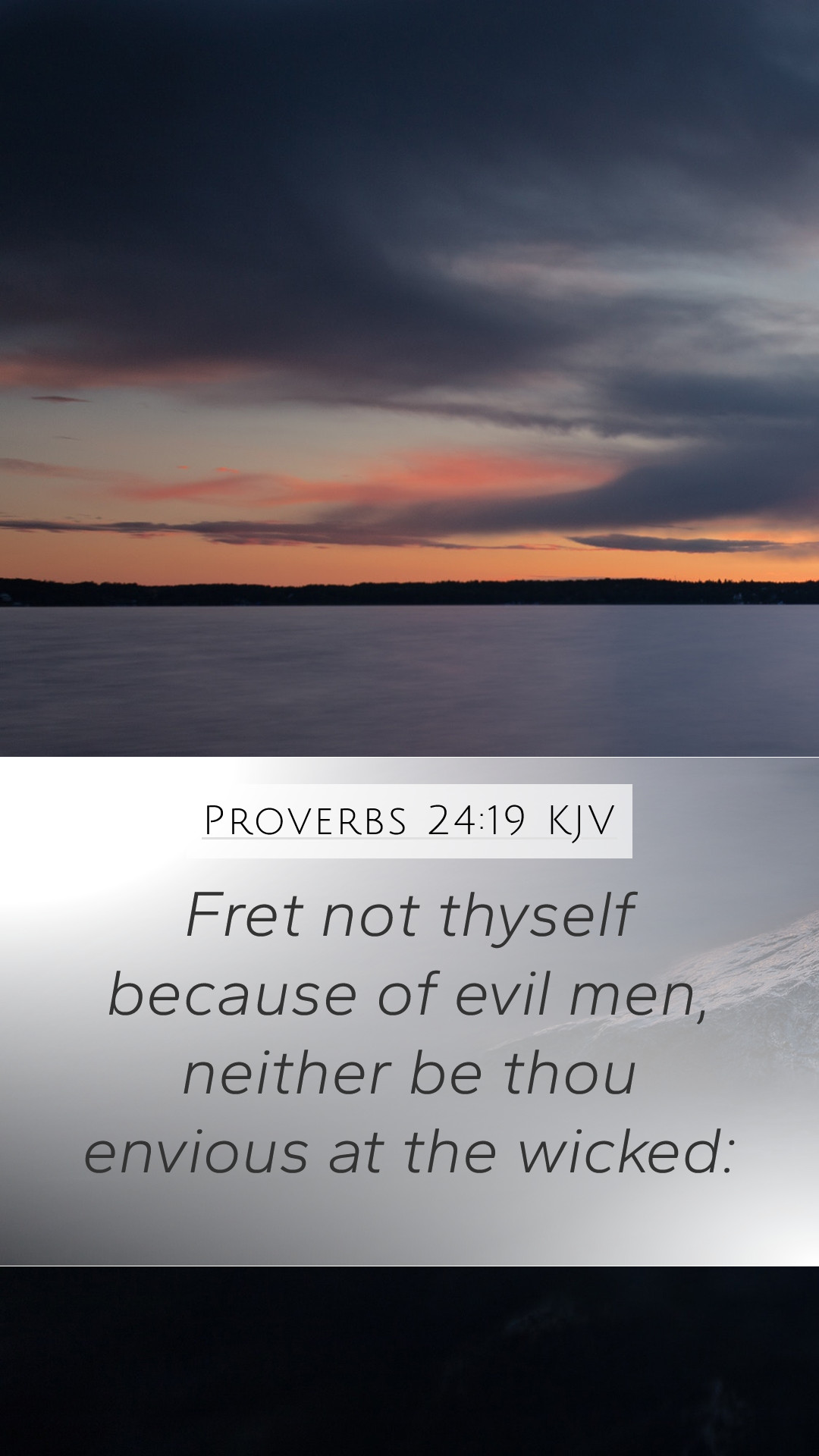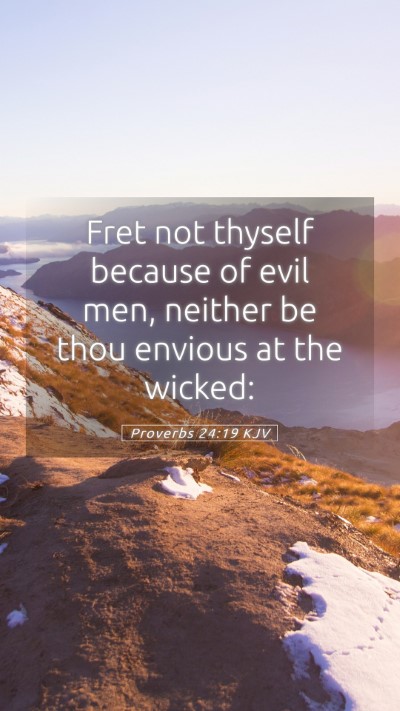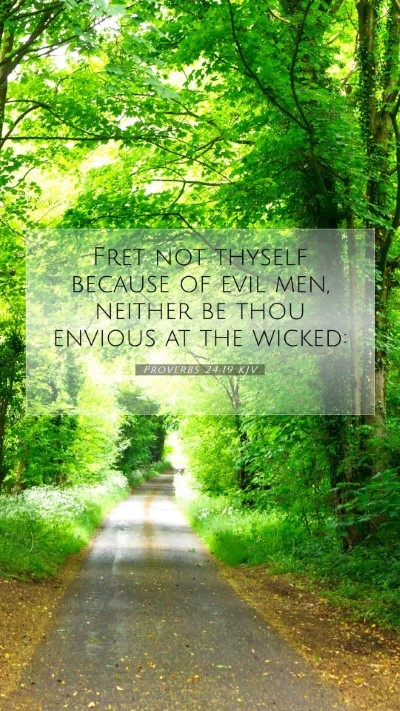Understanding Proverbs 24:19
Verse: Proverbs 24:19 - "Fret not thyself because of evil men, neither be thou envious at the wicked."
This verse from the Book of Proverbs offers profound bible verse meanings that speak to the human condition and the moral quandaries we face in life. Within the framework of bible verse interpretations, this verse serves as a sobering reminder not to allow the prosperity of the wicked to disturb our peace, or to cause jealousy to swell within us.
Verse Explanation
As we delve into the bible verse commentary, we can draw insights from legendary commentators like Matthew Henry, Albert Barnes, and Adam Clarke. Their collective wisdom enhances our understanding Scripture by offering historical context and practical applications of this passage.
Historical Context
Proverbs, traditionally attributed to King Solomon, is filled with sayings that encapsulate wisdom aimed at guiding individuals toward a life aligned with divine principles. The audience is often young people, or those seeking wisdom to navigate their lives.
Key Themes in Proverbs 24:19
- Discouragement by Evil: The verse encourages believers not to allow themselves to become disheartened or agitated by the actions or success of those who practice wickedness.
- Resisting Envy: The instruction to avoid envy serves as a protective measure against the corrosive effects that such feelings can have on one’s spiritual and emotional health.
- Focus on Righteousness: Instead of fixating on the success of the wicked, individuals are encouraged to remain steadfast in their commitment to righteousness and integrity.
Matthew Henry’s Commentary Insight
Henry emphasizes that the vexation caused by observing the prosperity of the evil can lead one astray. He advises believers to focus their eyes on God’s justice and the ultimate outcome for both the righteous and the wicked. He calls for an eternal perspective, assuring us that while the wicked may flourish for a season, their end is destruction.
Albert Barnes’ Commentary Insight
Barnes highlights the danger of being led into a wrongful mindset when comparing oneself to those characterized as wicked. He posits that every time we waste energy fretting over the prosperity of others, we detract from our own spiritual growth. The takeaway is a warning against envy and a reassurance of the rewards of living a godly life.
Adam Clarke’s Commentary Insight
Clarke points out that this verse serves both as an admonition and as comfort to the righteous. He states that the wicked often seem to prosper, but this is a transient condition. The righteous man, therefore, should find peace in the reality of God’s justice, which often is not seen in the immediate but is assured in the spiritual realm.
Application to Daily Life
In our Bible study insights, it is crucial to discuss how we can apply this verse to contemporary life. This involves recognizing that societal measures of success often do not align with God's standards. Instead of falling into patterns of comparison or disdain, believers are called to live authentically, rooted in faith.
As individuals engage with Scripture, they should seek to internalize the wisdom of Proverbs 24:19, reminding themselves to:
- Cultivate Contentment: Focus on personal growth in faith rather than on outward success.
- Practice Gratitude: Recognize the blessings in one's own life, regardless of societal standards.
- Encourage Others: Share the wisdom gained from this verse within bible study groups, fostering a community that supports righteousness over envy.
Related Scripture Cross References
- Psalm 37:1 - "Fret not thyself because of evildoers, neither be thou envious against the workers of iniquity."
- James 3:14 - "But if ye have bitter envying and strife in your hearts, glory not, and lie not against the truth."
- 1 Peter 3:17 - "For it is better, if the will of God be so, that ye suffer for well doing than for evil doing."
Conclusion
In summary, Proverbs 24:19 is a rich text that encourages reflection upon the nature of evil and the human response to its apparent success. Utilizing bible study tools and resources such as commentaries, palm readers can deepen their understanding of Scripture, engage with historical context, and ultimately apply these lessons in their lives.
This passage serves as a reminder to examine the meaning of Bible verses not just within the context of ancient wisdom but also in our modern experiences. Believers are encouraged to focus on their own righteousness, cultivate patience, and rely on the promises of God's ultimate justice, paving the way for spiritual growth and fulfillment in life.


